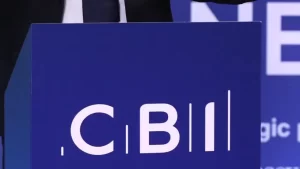
Centrica CEO’s Salary Soars by Nearly £4m Despite Previous Justification Concerns
The chief executive of Centrica, Chris O’Shea, saw a substantial increase in his annual pay, rising by nearly £4 million, despite his earlier assertion that such a salary was unjustifiable.
O’Shea’s total pay for 2023 amounted to £8.2 million, a significant leap from the £4.5 million he received the previous year, as disclosed in the energy company’s recently published annual report.
His remuneration package comprised a £810,000 salary, approximately £1.4 million in annual bonuses, and £5.9 million in longer-term bonuses tied to the company’s share price performance. The surge in Centrica’s stock price over the past year, coupled with reported profits of £2.8 billion, contributed to this substantial increase.
Centrica’s financial gains were largely attributed to the surge in energy prices following geopolitical events, including the Russian invasion of Ukraine, and regulatory decisions such as the lifting of the price cap on household energy bills by Ofgem.
The revelation of O’Shea’s increased pay comes in the wake of his earlier statement on BBC Breakfast, where he expressed difficulty justifying such a salary, particularly amidst customer hardships. Despite his concerns, the company highlighted that O’Shea’s bonuses were contingent upon Centrica’s financial performance and share price, approved by shareholders.
Carol Arrowsmith, a Centrica board member overseeing remuneration, defended O’Shea’s pay, emphasizing the necessity of attracting and retaining high-performing executives to ensure the company’s long-term success. Arrowsmith emphasized that O’Shea’s pay structure was consistent with industry norms and had been approved by shareholders.
O’Shea, who joined Centrica in 2018 and assumed the role of CEO in 2020, continues to navigate the delicate balance between executive compensation and public perception amidst Centrica’s financial gains and ongoing consumer challenges in the energy sector.
Read more:
Centrica CEO’s Salary Soars by Nearly £4m Despite Previous Justification Concerns

